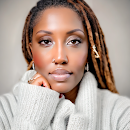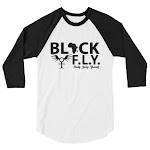Hey BAye Hive Tribe! Happy Monday!!
With any type of anxiety, there are what are known as “triggers”. These are basically the things that set off your anxiety. Identifying your triggers is important if you want to learn to combat the condition.
Not sure what your triggers are? Here, you’ll discover some of the best ways to identify your anxiety triggers.
What Are Common Anxiety Triggers?
Anxiety triggers differ from person to person. They also vary depending upon the type of anxiety you are experiencing. However, there are some common triggers that comparison anxiety sufferers can relate to. These include:
· Social media use
· Caffeine
· Stress
· Medications
· Negative thinking
The most common trigger in comparison anxiety is social media use. You may notice that after using social media, you feel more anxious about your life. It can also cause you to feel depressed or detached.
And did you know caffeine can worsen anxiety symptoms? So, if you find you drink a lot of coffee or soda containing caffeine, you might want to cut back. Similarly, stress can exacerbate anxiety, alongside negative thinking.
Being able to identify what it is that triggers your anxiety is key to getting it under control. So, let’s look at some ways you can identify your own personal triggers.
Keep a Journal
The best way to identify anxiety triggers is by keeping a journal. Use it to write down when you feel comparison anxiety kicking in. Keep track of the time, how you felt and what you were doing. Do this for at least a week, but the longer you do it, the more accurately you’ll be able to identify your triggers.
You will start to recognize patterns in your behavior. For example, you may notice you feel most anxious in the evening after checking your social media accounts. Once you have identified this pattern, you can work on changing it.
So, start to keep a journal and record everything to do with your anxiety. Then, use that to pinpoint your triggers.
Planning Around Your Triggers
Once you know what your anxiety triggers are, you can plan to avoid them. If social media is causing you to feel more anxious, for example, you can plan to limit your usage. Perhaps it’s a certain person on social media who makes you feel bad about yourself? If so, delete them from your friends list and see how much that helps to reduce your anxiety.
It could be that you find negative thinking is causing a lot of your anxiety. If this is the case, start recognizing when you are thinking negatively and really try to switch it to a positive. Being able to stop negative thinking in its tracks is hard, but not impossible.
These are just some examples of common anxiety triggers. By recognizing your own triggers, it gives you a much better chance at controlling the condition. Keeping a journal is one of the best ways to identify and keep track of your triggers. So, if you haven’t already, start looking for patterns with your anxiety to see what triggers you need to avoid.
Take this newfound knowledge and confidence and start identifying the steps you need to take, balance your rationale and emotions, avoid making rash decisions, think about what you really want and (most importantly) release all of that tension!
To your happiness and success!!
Until Next Time! Stay Beautiful!








.jpg)

0 Comments
Thank you for reading!